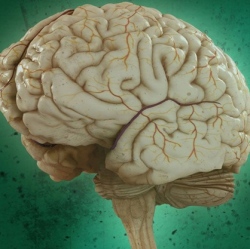
Researchers in Germany have made new steps towards a potential blood test for Alzheimer’s by studying molecules called miRNA circulating in the blood. The research is published on 29 July in the journal Genome Biology.
Currently, a diagnosis of Alzheimer’s disease can only be confirmed post-mortem and diagnosis during life is made based on the results of memory and thinking tests and brain scans. There is a growing focus on developing more sensitive methods of detection, to help improve the accuracy of diagnosis. This includes the search for changes in blood that could be translated into a clinically useful blood test to aid diagnosis of the disease.
To investigate this further, the team studied molecules called miRNA, which play a role in fine-tuning the activity of genes in the body. miRNA have already been linked to diseases such as cancer and heart disease and research is underway to investigate their role in Alzheimer’s.
The team analysed blood samples from 48 people with Alzheimer’s and 22 unaffected controls, looking for changes in the levels of miRNA between the two groups. They discovered 140 miRNAs whose levels were altered in people with Alzheimer’s and 12 of these were made into a ‘panel’ for further testing. The 12 miRNA’s were thought to regulate the activity of more than 2000 genes, including genes responsible for nerve cell development and the projection of nerve cells across the brain.
The panel was used to test another 202 blood samples, taken from volunteers with and without Alzheimer’s, those with early memory and thinking problems called mild cognitive impairment, and also those with other neurological conditions including multiple sclerosis, Parkinson’s and schizophrenia.
The research shows that the panel was able to distinguish between those with and without Alzheimer’s with a high degree of accuracy, although the ability to distinguish between Alzheimer’s and other neurological conditions was lower.
